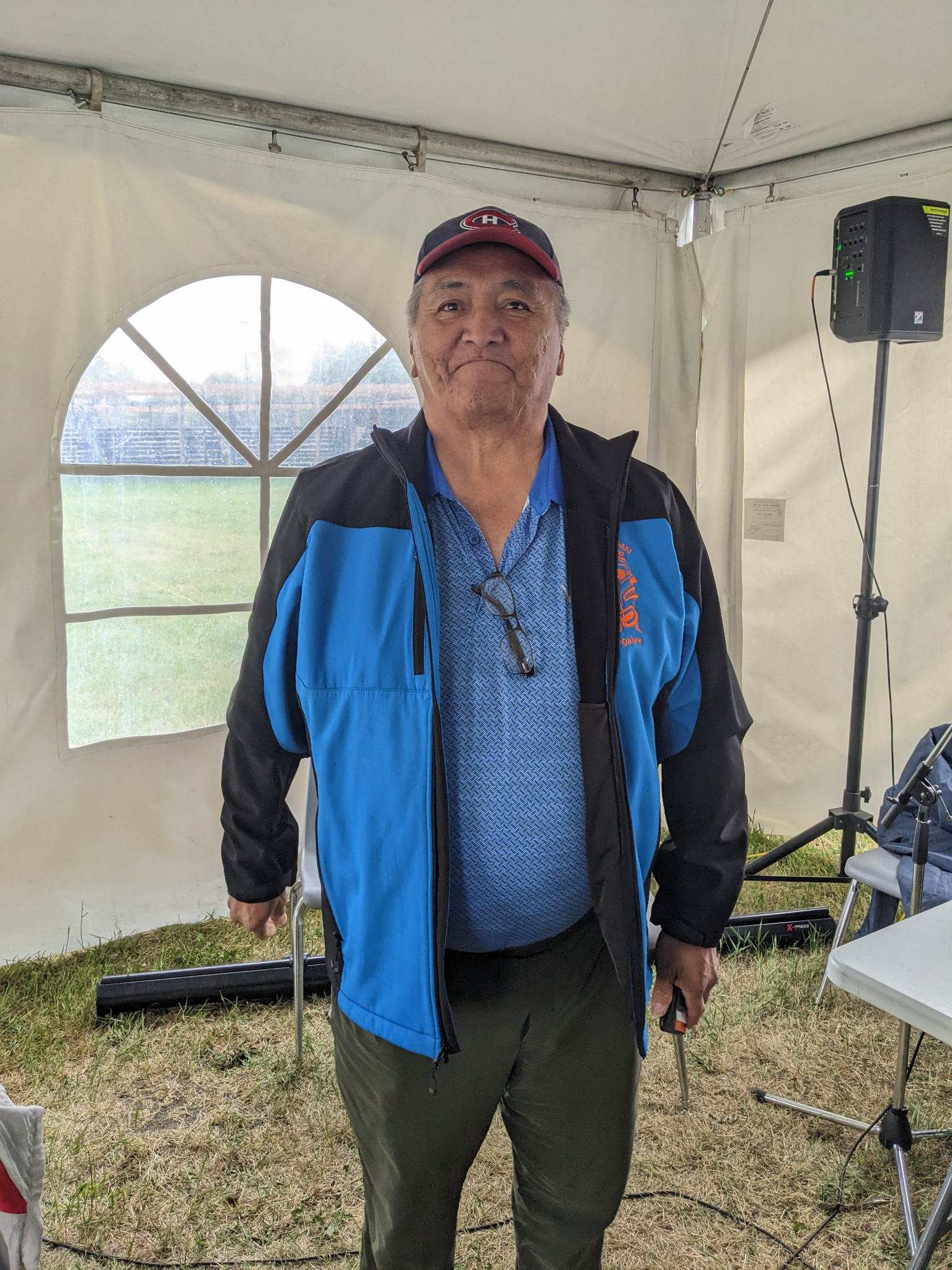Gary Williams- Get on the Train
Okay. Hey, it’s Gary Williams here. Survivor of the Edmonton Indian residential school. We were, I come from the land of the Gitxsan people in Northwestern British Columbia. I was born in 1949, and about in 1961, my brother and I, Wilfred he’s two years younger than me, arrived here by train. And we didn’t know where we’re going.
Our Parents didn’t let us know where we were going, they said, “Just get on,” well they didn’t say get on the train. It was, they called them Indian agents back then, the people that are working for the government that looked after the Indian reserves. And so they got us ready. Just had the clothes we had on. Get on a train. Took us a whole day, 23 hours to get here. My brother was nine years old and I was eleven. Like I said, we didn’t know where we’re going… they just told us to “get on the train,” and that was it.
We didn’t really know, at that time, we didn’t know who all the students were. They were from all native communities in the Northwest, some we probably knew. We didn’t make contact with them, yet they were on the same train, because we didn’t know them. At that time in ‘61 we hardly knew our neighbors, let alone know our, know, our people in the community.
Anyway, we arrived here, and all the people that were on the train we were, they had a couple of bus loads that brought us to the residential school here. And again, we didn’t have… that point we didn’t know where we’re going, and where we were. So they dropped us off and they let us just form a row outside school entrance of the school, and I know that day was kind of hot like in the fall but it is still warm. And we seen this big red building in front of us in our lineup, student lineup. There was all boys because we were made to go on one side of the building. The girls were on the other side of the building.
There was an administration building in between us. But they didn’t want us to get… to go into the [school] building because there was an infirmary in the front office, close to it. They told us to, “stay lined up and wait for your turn.” We had just the clothes we had on and that was the last time I’d seen my brother [younger by two years] for four months, until Christmas time.
Anyway it was kind of strange how they handled us. 1961 this was. Just like I said we didn’t know anything what was happening. We were just like, more or less treated like animals, I guess. You follow instructions, whether it was lay down or whatever. Anyway, you’re going and it was our turn to enter the infirmary. They brought us in one by one, and the first thing they did to us was to strip us down to no clothes at all.
And the next thing they did, they had a clipper. Shaved our heads, bald. The third stage was to jump into the tub. Back in those days there was no shower or anything. They uh, they wanted to try, and that was the first step of everything was to try and clean us up to go at our residence, at our dorm.
So, they I remember them after they, the last thing they did to me was to scrub me down, they had some people the workers there. I don’t know if they were guys or whatever they were. They were scrubbing us down until they were trying to make us white I guess, so after we’re done wiped ourselves dry.
-Gary Williams
Notes:
Oral interview with Gary Williams. Conducted by Peter Dawson at Poundmaker’s Lodge, St Albert, May 4, 2022. Transcribed by Erica Van Vugt and Madisen Hvidberg. University of Calgary, Jan 23, 2024.

